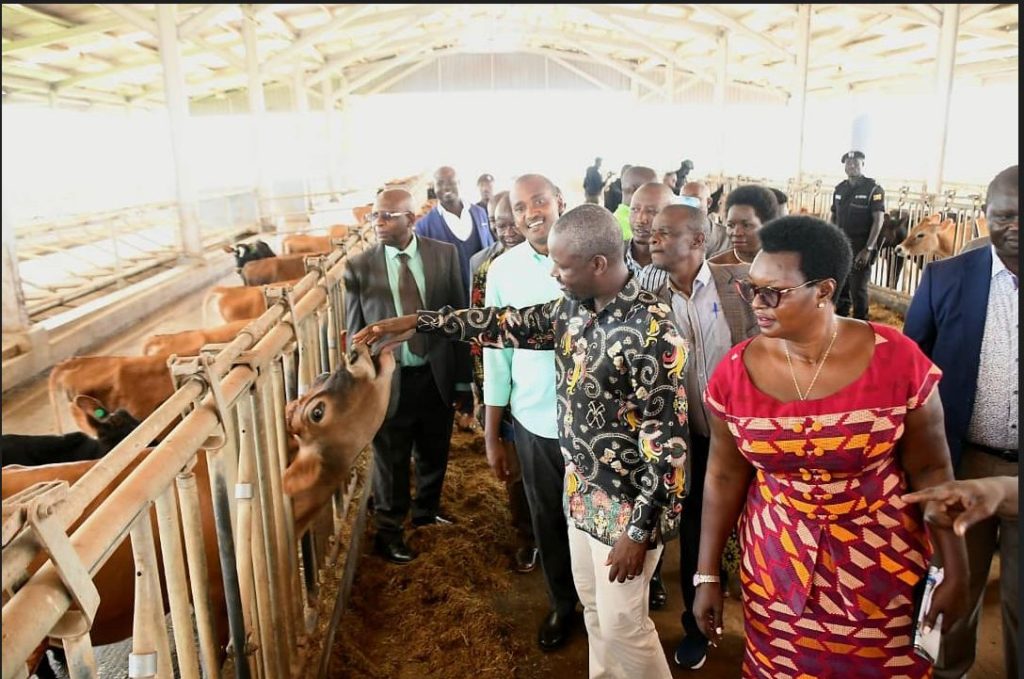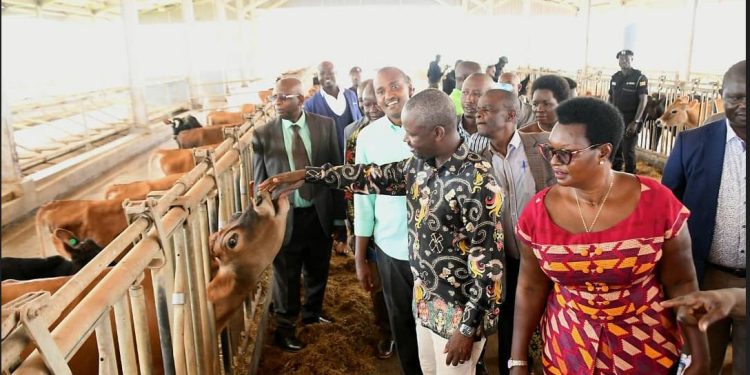The Deputy Speaker of Parliament, Thomas Tayebwa has cautioned National Agricultural Research Organization(NARO) about Genetically Modified Organisms(GMOs).
While attending at NARO exhibition at Namulonge where researchers showcased various products innovated, Tayebwa told NARO not to be influenced by the western cultures in their research.
He implored them to see away of doing research that will improve indegious seeds and breeds instead of GMOs
“First acertain and ensure that we have a gene bank for our indigenous products and we try them. We support you with irrigation, we support you with extension farmers, we support you with post harvest handling methods like the method I have seen on aflatoxin and then we go GMO,” Tayebwa wondered.
He therefore noted that there’s alot we can do as a country, advising that we need to first exploit our potential before going into genetic modification and engineering.
“So if we can support you on genetic improvement, and what you have in the laboratory is first put it in the public, it can push us for the next 50yrs and then we think of engineering.”

He reiterated the position of parliament not supporting GMOs but instead promote the use of technology to improve indigenous seeds and breeds.
Tayebwa hailed scientists for the wonderful innovations in the animal industry and crop husbandry
He aldo applauded NARO for the anti tik vaccine saying it will save government from spending big sums of money on acaricides and drugs that manage tick borne diseases.
Dr. William Nanyenya Ntege, the director of research at the National Livestock Resources Research Institute , said their major emphasis is to make sure that the country’s animals are protected using vaccines, particularly anti-tick vaccine.
He noted that more than 70% of the health bill at the farm level goes in control and the management of ticks and tick borne diseases at the national level.
“Government spends about shs 3 trillion shillings in importation of acaricides and the drugs that manage tick borne diseases.”








































